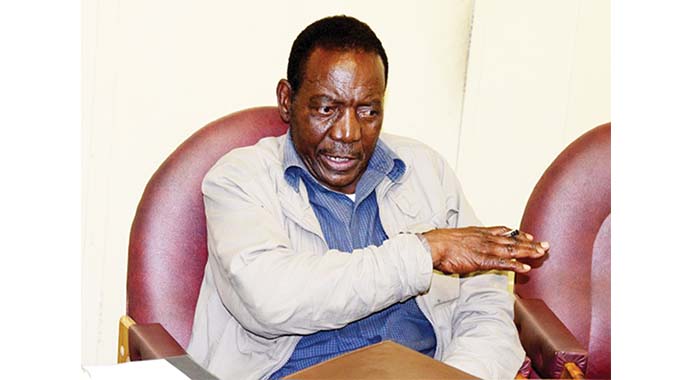Zim financial economist develops currency confidence index

Business Editor
SOUTH Africa-based Zimbabwean financial economist and award winning central banker, Mr Collet Ndlovu, has developed an innovative currency confidence measurement model to assist monetary authorities in management of inflation and foreign exchange volatilities.
Named after its originator and developer, “The Ndlovu Currency Confidence Index” (NCX Index) seeks to unpack the relationship between the level of expected future inflation, the external value of the currency, and the uncertainty associated with the outcome of these variables. By measuring confidence, Mr Ndlovu believes the credibility of monetary authorities gets enhanced and trust is restored.
Formerly with the financial markets department of the South African Reserve Bank, where he scooped merit awards, Mr Ndlovu says the NCX Index should be adopted as a measure of confidence in determining monetary policy anywhere in the world.
In his brief following the recent launch of the model, he said the NCX Index will be used initially in the Zimbabwean context and then rolled out to the global financial markets starting with key African economies like Kenya, South Africa and Nigeria.
“I argue that the measurability of currency confidence can be used as a powerful metric for both price stability and currency stability,” he said.
“Such a measure will greatly enhance the existing tools for managing inflation and foreign exchange volatilities. It will help policy makers gain an insight into how their work links with the expectations of the markets,” said Mr Ndlovu, an author of several economics literature.
According to the NCX Index, the level of confidence on monetary policy can be measured by the difference between the official targets for the external value of the currency, the internal value of the currency and the markets’ expectations of these two variables.
Said Mr Ndlovu; “The external value of the currency is reflected by the foreign exchange rate while the internal value of the currency is determined by the impact of inflation.
“The proximity between the official levels and the markets levels is what could be termed the level of credibility. As the spread widens between the two (targeted and expected) this becomes correlated with the loss of credibility.”
Mr Ndlovu said confidence is an intangible asset in economics and in terms of monetary policy, this is gained if the public believes that the monetary authorities will actually carry out their stated objectives like price and currency stability. This implies that inflation expectations of the market and, the foreign exchange value of the currency tend to be aligned with the actions of the monetary authorities.
“Confidence is the central hub around which currency values revolve. The same applies to price stability. It is driven by confidence and credibility.
“In central banking, credibility is everything. Confidence is the new currency. It is what determines the value of a currency alongside trust and soundness of policy,” said Mr Ndlovu.
“Markets are skittish by nature and in central banking, credibility is enhanced through low inflation, and currency stability. Price stability and the stability of the external value of the currency are sine qua non for successful central banking.”
The calculation of the NCX Index has entailed the computation of the inflation rate differentials as one variable while the foreign exchange rates differentials were used as the other variable. The weighted average of the summation of these variable differentials equates to a metric, which amounts to the loss of confidence, he said.
“The inverse of this measured metric is the confidence level. By way of an example, if the loss of confidence metric is measured to be 62 percent, it follows that the confidence level is 38 percent.
“The NCX Index postulates that as loss of confidence in the currency increases, the level of confidence in the currency decreases. It stands to reason that policy makers should strive to increase the level of confidence towards 100 percent,” said Mr Ndlovu.
In the foreign exchange market, he said the monetary authorities can target a certain exchange rate level and that the markets’ expectation of that value is a good measure of confidence.
“The markets’ confidence is what gives currencies the values they enjoy. The value of a currency is correlated with the level of confidence it enjoys from the markets. “Inflation targets provide the public with an idea of what authorities’ targeted rate of inflation is. That can then be juxtaposed with the expectations of the markets of what they think the inflation would be. The closer the proximity to the targeted level, the higher the confidence level,” said Mr Ndlovu.








Comments